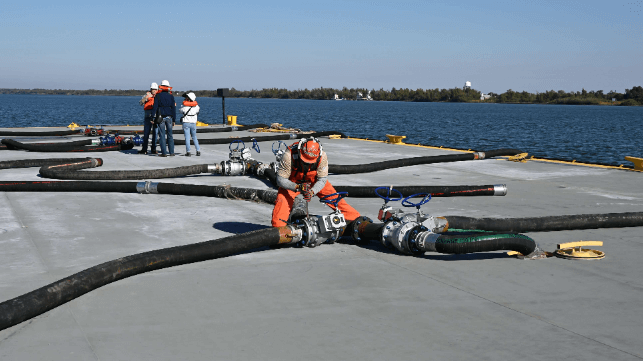Historic Low Water Hits Shipping on Lower Mississippi

According to the National Oceanic and Atmospheric Administration, the Mississippi River hit record low levels for the month of October, impacting navigation and drinking water supplies on parts of the Lower Mississippi.
According to NOAA, a relatively warm October and drought conditions across the Lower Mississippi Valley helped reduce water levels to historic lows along parts of the Mississippi River last month. It is the second year in a row that the river has set low-water records, and has created navigation and saltwater intrusion issues in southern Louisiana.
The water level has been falling for months. Hot temperatures across the central U.S. increased evaporation over the summer, and low rainfall reduced inflow. Below-water features like sandbars and wrecks now protrude in many places, and there are long stretches of river where motorboat ramps no longer reach the water.
On the Mississippi south of New Orleans, a wedge of saltwater has pushed its way up along the river bottom from the sea. The U.S. Army Corps of Engineers is raising an underwater levee along the bottom of the river to prevent its further progress northwards. The levee will leave a water depth of just 30 feet across a 1500-foot span, but it will still have a 55-foot-deep "notch" in the middle for deep draft navigation, one ship at a time.

that matters most
Get the latest maritime news delivered to your inbox daily.
For shipping and farming interests, the drought means difficulty in delivering product to market. Grain barge traffic has been impacted, and bulker navigation up the river to loading ports has been restricted. Last week, outbound wheat shipments dropped to the lowest level on record, dating back 40 years. The previous record low for wheat export tonnage was set last year.
“It’s the most important working river, commodity wise, on the planet,” said Colin Wellenkamp, director of the Mississippi River Cities and Towns Initiative, speaking to the New York Times. “We’re going to feel this globally.”
